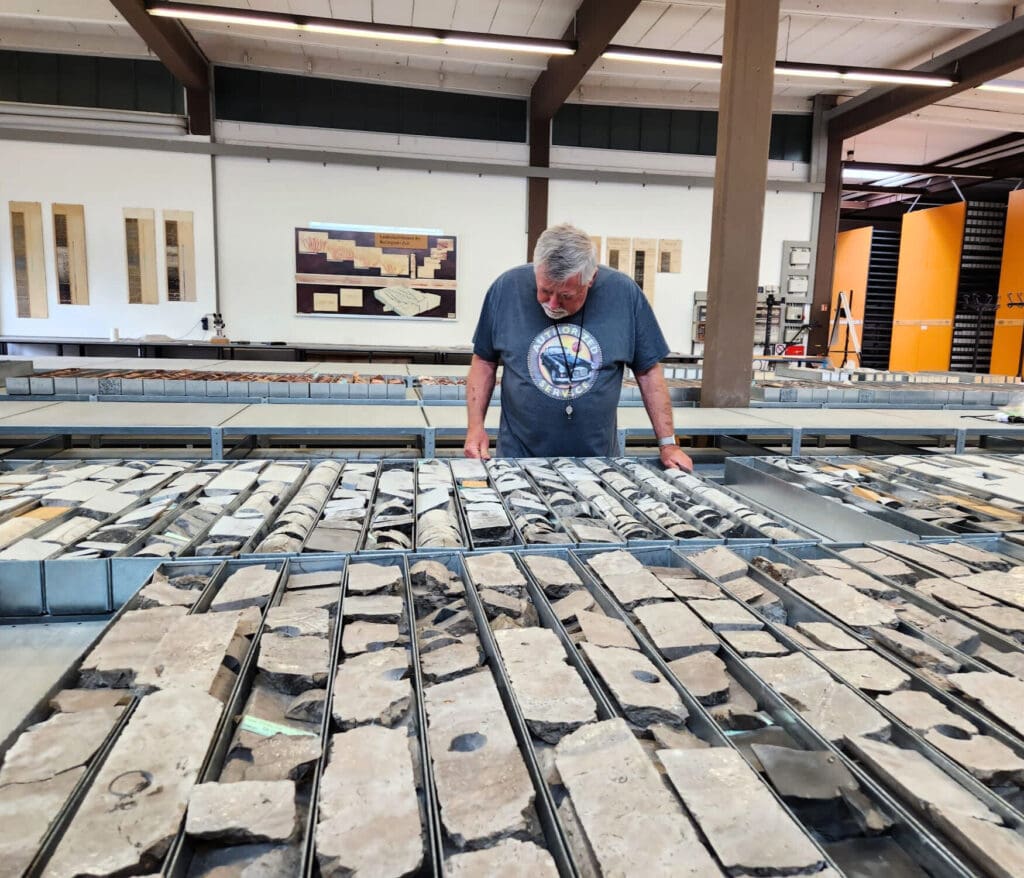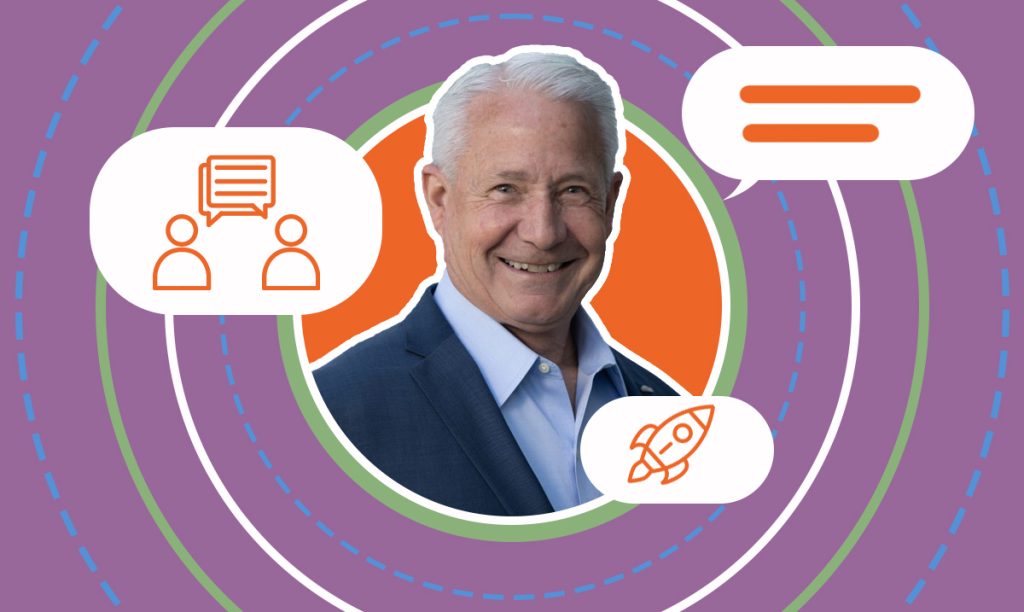When it comes to business banking, a one-size-fits-all approach doesn’t cut it — just ask Endeavor Bank. Since its founding in 2017, EndeavorBan ...
James Hill’s Unique Approach to European Energy Challenges
Written by: Esther Strauss
Esther is a business strategist with over 20 years of experience as an entrepreneur, executive, educator, and management advisor.
Published on December 13, 2023

In a time when the global energy landscape is undergoing a profound transformation, James Hill, the CEO of MCF Energy, emerges as a key architect of this new era. With a career spanning over four decades in the energy sector, Hill’s expertise and leadership have become increasingly vital in the wake of geopolitical upheavals. His recent decision to emerge from retirement and helm MCF Energy is a testament to his unwavering commitment to not just the energy sector but also to the broader cause of European resilience and sustainability.
As a seasoned geologist and a proven business leader, Hill brings a unique blend of scientific acumen and strategic foresight to the table. This interview delves into the inner workings of MCF Energy’s strategies, challenges, and innovations as the company races against time to reinforce Europe’s energy independence. From discussing the motivations behind Hill’s return to the corporate arena to exploring the intricate balance between urgency and sustainability, the conversation offers a rare glimpse into the mind of a leader who is not just navigating but actively shaping the future of Europe’s energy landscape.
James Hill’s Motivation for Leading MCF Energy
SBS – What motivated you to come out of retirement and start MCF Energy?
James – Following Russia’s invasion of Ukraine, it was utterly clear domestic energy production in Europe was the missing piece of the equation, and by “turning it back on,” Europe would become less reliant on Russia. The only problem was that it was not clear as to who was going to carry out this massive undertaking. The lack of reassurance was enough to motivate me out of retirement. Having spent 40 years in the energy industry already, and over 10 years primarily in Europe, when MCF Energy was formed, I knew I wanted to be a part of achieving its mission to turn Europe from being energy-reliant to energy-independent.
Accelerating Europe’s Energy Infrastructure Development at MCF Energy
SBS – Can you describe the key strategies MCF Energy is implementing to expedite the development of Europe’s domestic energy infrastructure?
James – Since the onset of the invasion, there have been major shifts in the energy landscape which, in turn, support our quest for energy independence in Europe.
Firstly, permit approvals have moved faster than ever before, and secondly, Europe labeled natural gas as “green” last year, recognizing its place as the appropriate bridge fuel as we transition to a future with renewables. Natural gas is the cleanest, most cost-effective, and abundant fuel on the planet.
Since December 2022, we’ve been unyielding in our commitment to fortify Europe’s energy security, as our aim is not to provide a temporary solution but to induce a lasting impact by developing Europe’s internal resources and infrastructure.
We have two major assets in Austria and Germany. The Welchau prospect in Austria received environmental clearance in December, which was the final step ahead of drilling. Our management team is made up of experts, including Ford Nicholson, Jay Park, Deborah Sacrey, Wesley Clark, Peter Eckhard Oehms, and many others. Every asset we’ve acquired has gone under intensive due diligence, as we are looking for projects that will be impactful to Europe, the company, and shareholder value. We reviewed all pre-existing data and selected projects that met our risk-to-reward criteria and also demonstrated potential success. By having implemented this methodology, we are likely to expedite the pace at which we uncover potential success.
MCF Energy’s Approach to Urgent Infrastructure and Clean Energy Commitments
SBS – How does MCF Energy balance the urgency of infrastructure development with the commitment to clean energy?
James – The EU is the world’s largest buyer of natural gas. More imports equal more carbon.
However, according to IOGP Europe, domestic natural gas production in Europe can decrease the continent’s carbon footprint by a whopping 30%. Additionally, as MCF Energy uses advanced industry technology, including machine learning and AI, to help achieve an unparalleled level of precision and risk reduction, the company is further mitigating the possibility of potential environmental damage and, in turn, increasing efficiency and safety levels.
Furthermore, hydrogen is on track to play a more pivotal role in Europe’s energy market, especially over the next decade. We are seeing formidable progress in the UK Market and Germany. Blue hydrogen is derived from natural gas and represents the “next” step in the transition. All that to say, MCF Energy is proud to share that it is currently vetting hydrogen projects to potentially add to its portfolio.
Nevertheless, a steady natural gas supply in Europe is required before we can accelerate the production of hydrogen domestically. Fortunately, domestic natural gas projects like ours are underway.
Influences of a Scientific Background in Leading MCF Energy
SBS – As a geologist, how has your background influenced the way you lead an energy company compared to a business professional?
James – It’s simple but important. I live, eat, and breathe the industry. This goes for many geologists. A business professional, on the other hand, may not. Geologists hold a significant amount of technical knowledge and experience in addition to time spent in the field. This gives us an upper hand, especially in today’s world. My experience has confirmed how far the industry has come in terms of making it safer, cleaner, and technologically more advanced.
I can proudly say I’ve run massive exploration campaigns across multiple countries during my four decades. I earned my Master’s of Science in Geology from California State University, and I also hold my Certified Petroleum Geologist designation. I am also a Chartered Member of the London Geological Society.
I served as the President of the Division of Professional Affairs for the American Association of Petroleum Geologists (AAPG), and prior to MCF, I was VP of Exploration for both BNK Petroleum and Bankers Petroleum.

Community Engagement
SBS – How does MCF Energy engage with local communities and other stakeholders to ensure the benefits of infrastructure projects are widely distributed?
James – As a company, we believe the concerns and fears of the local community must be addressed and answered. MCF wants to be a part of the community and a good neighbor, protecting the environment and the neighborhood. Transparency with our operations and exceeding environmental requirements is key to building trust in the stakeholders. That’s our mantra, throughout our exploration in Europe, local stakeholders are going to be properly engaged.
At the end of the day, fear comes from a lack of clear explanations and a lack of opportunities to ask questions. Our plan is to gently educate and show people that things are going to be just as good as they’ve always been, except, hopefully, there’ll be a lot more natural gas available, and the prices are going to be lower.
Cultivating Innovation
SBS – In what ways is MCF Energy fostering innovation to stay ahead in the rapidly evolving energy sector?
James – As mentioned above, we’ve been using machine learning and AI in our efforts. The type of machine learning we are using is new to the industry, having been developed over the last 10 years. We are truly breaking some new ground in our exploration efforts in Europe. With more accurate data sets and stronger inferences being made, these new technologies experience success rates that reach above 80%. We have used this technology to select new well locations in Germany and acquire additional concessions.
MCF is using data analyzed by machine learning software to reliably pinpoint where there is a high probability that oil and gas are present. The technology also allows us to identify multiple targets so more than one well can be drilled for a single site. This greatly reduces the surface impact and costs. With all this being said, technology will not replace geologists and technical experts, but it is a miraculous accompaniment and helps us to do our jobs well.
Sustaining Competitive Edge
SBS – How does MCF Energy plan to maintain its competitive edge in the European energy market in the coming years?
James – We are en route toward the use of electricity and renewables, but it is clear we are still decades away from a full transition. New electrical grids must be built. Critical minerals that surpass the currently available supply are required to build long-term energy storage and are also required for other purposes. In November, Germany slashed its 60 billion euro budget for energy transition projects, meaning natural gas will now become even more important. It will take decades to transition to non-carbon-based energy, and until then, natural gas will remain the bridge fuel for the foreseeable future.
As a company, MCF Energy is proud to be focused on the continued search for natural gas to help facilitate the transition to a cleaner, carbon-free world. We are currently assessing partners in methane extraction and production and reviewing the economics for a pilot Blue Hydrogen production process in Germany.
Advice to Aspiring Industry Entrepreneurs
SBS – Looking back over your 40-year career, what advice would you give to entrepreneurs looking to make a significant impact in their industries?
James – Understand true risk management.
Textbook risk management approaches rarely prepare for actual, real-world risk. Black swan events are increasingly dominating the market environment, and the internet, paired with globalization, especially post-COVID, has made the world a complex system. Based on my experience, companies that ignore Black Swan Events will go under. It’s truly difficult to predict them, but to some degree, there needs to be preparation and a Plan B should things go by the wayside. MCF Energy formed on the back of a black swan event. The global energy crisis initiated by Russia’s war against Ukraine in 2022 led me and world-leading energy experts to take risks to help Europe rebuild and develop the energy landscape, and I believe it will pay off. We cannot manage risk entirely by predicting extreme events. But its important to remember companies that inherently work to understand the downside are likely to walk away with a big piece of the upside.
Subscribe to Our Newsletter
and gain insider access to cutting-edge business insights and trends.
Featured Resources

Empowering Entrepreneurs with a Consultative Banking Model
Published on January 23, 2025
Read Now

How Painless Notary Simplifies the Process with Mobile Services
Published on August 26, 2024
In an industry traditionally rooted in face-to-face interactions, Kyle Beam is challenging the status quo with Painless Notary, a company dedicatedt ...
Read Now

How to Succeed in the Salon Suite Business
Published on July 22, 2024
In this interview, we sit down with Karen Kaminski, the owner of Allure Salon Suite Consulting. Karen shares her journey from owning a nail salon to ...
Read Now
Comments